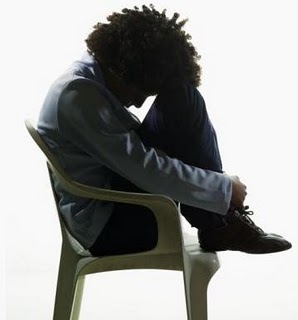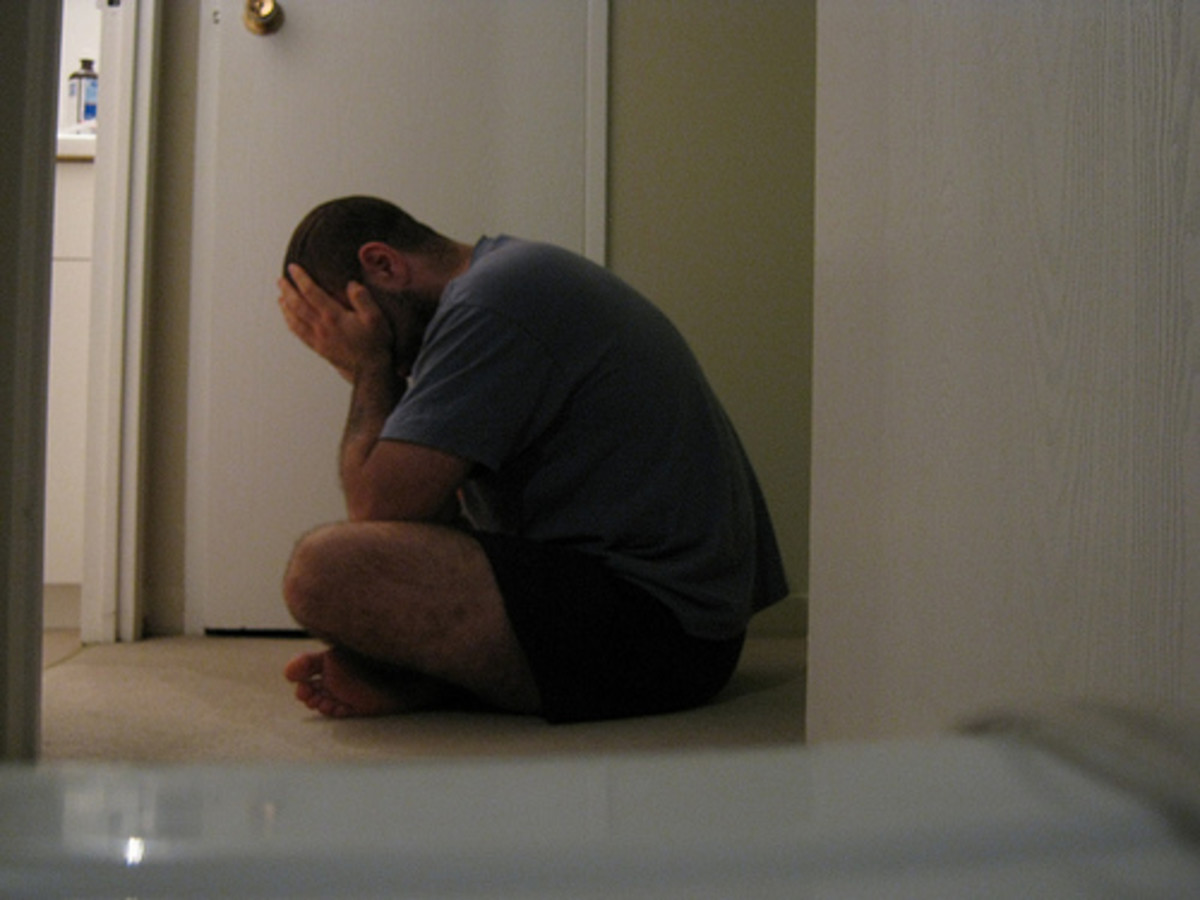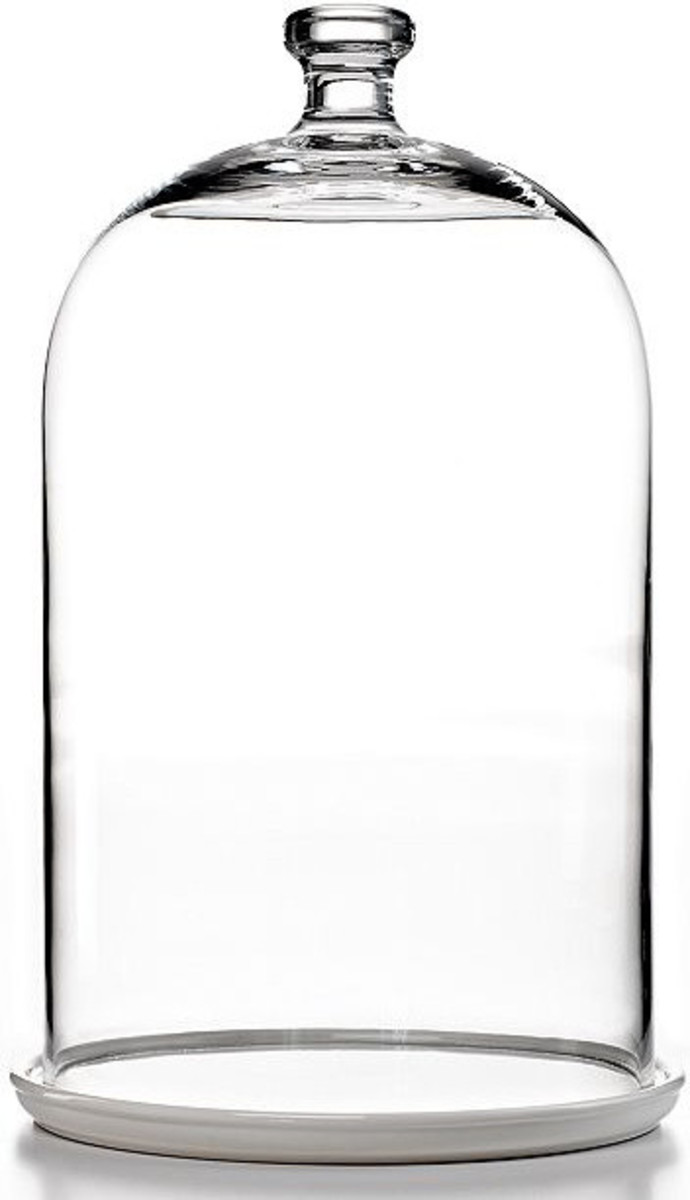Coping with Depression and Knowing When to Get Help

What Is Depression?
Depression is a misunderstood illness. You can't just 'snap out of it'. The sadness and feelings of hopelessness are overwhelming. Your sleeping and eating patterns have changed. You've become withdrawn. Nothing seems to make you happy and it's become difficult to accomplish every day tasks that were once simple.
According to The National Institute of Mental Health, an estimated 14.8 million people in the U.S suffer from Major Depressive Disorder. This does not count people under the age of 18 or people who have not sought help, so the number may be much higher. Many things can attribute to depression including a major life change (loss of job, death of loved one, break up with significant other), a trauma in childhood and heredity. Over 34,000 people commit suicide every year in America alone and it is the leading cause of death of people between the ages of 18 and 65 (Statistics from American Foundation for Suicide Prevention). Depression is a serious health problem and can lead to death if the issue is not addressed.
Types of Depression
Listed here are some common type of depressions and mood disorders. These are general descriptions. Please keep in mind that only a doctor can determine what type of depression you may be suffering from, however this may help give you an idea.
Major Depressive Disorder (also known as Major Depression or Clinical Depression)
Feelings of extreme sadness lasting most of the day, every day for at least two weeks.
Dysthymic Disorder (or Dysthymia)
Not as intense as Major Depressive Disorder, but just as serious. Dysthymia lasts for many years, at least 2 years or more.
Bipolar Disorder ( once known as Manic Depression)
A type of depression that cycles from extreme mania or hyper-activity and extremely low periods of depression.
Cyclothymia
A type of mood disorder. Many experts consider Cyclothymia to be a milder form of Bipolar Disorder. Moods go from high to low but elevated moods are not high enough to be considered mania.
Atypical Depression
Atypical Depression is a type of depression that is so overwhelming that the person is to the point of emotional paralysis. This form of depression begins in the teen years and is more common in women than men.
Seasonal Affective Disorder (also known as S.A.D)
Seasonal Affective Disorder is a common type of depression that affects people around the winter months.
Changes In Brain Chemistry
There are three neurotransmitters that affect mood. They are norepinephrine, serotonin and dopamine. Serotonin is responsible for feelings of happiness and wellbeing. Dopamine is what makes people excitable. Norepinephrine is believed to increase during times of stress. The drop of these chemicals can cause depression. Medication works to help regulate these chemicals. Exercising, eating right and meditation may also help to balance neurotransmitters in the brain.
Activities That Alleviate Feelings of Depression




Symptoms of Depression
Depression symptoms include the following:
- Lack of pleasure in most activities that were once enjoyed
- Loss of energy
- Weight loss or weight gain
- Insomnia or excessive sleeping
- Lack of concentration or being easily distracted
- Crying spells
- Feelings of worthlessness and self hatred
- Feeling a sense of hopelessness
- Withdrawal from friends and family
- Thoughts of death or suicide***
For a complete depression self-assessment, please follow this link to the Mayo Clinic's webpage.
http://www.mayoclinic.com/health/depression/MH00103_D
***If you are having suicidal thoughts please seek immediate help. Seek family, friends or call 911. When you are depressed you are not thinking clearly. Remember that death is final and not the answer. There are people who care and will help you.
A Powerful Video on Positive Affirmations by Louise Hay
Positive Affirmations
When we are depressed, we naturally start having negative thoughts about ourselves. Sometimes negative talk actually causes our depression. Self talk like "I'm so stupid" and "I'm ugly and worthless," add to the unpleasant feelings and can make depression worse. Practice positive thinking. Write a list of things about yourself. Things you are good at, your personality or even a physical feature that you are proud of. Keep the list with you at all times and read it back to yourself when you need a pick me up. It's also a good idea to start the morning with some positive affirmations.
Not only does positive thinking help with depression, but many people believe you can manifest wonderful things in your life just by believing it.
Getting Help
Admitting you are depressed is the first step. Thinking positive is usually not enough. Seeking help is one of the most courageous and responsible thing you can do for yourself. Contact your doctor for an appointment and let your doctor know how you have been feeling. S/he may prescribe medication and refer you to a therapist or psychiatrist.
A lot of people are afraid to take medication. The truth is that it is necessarry in some cases. Express your concerns with your doctor. Your doctor should be well informed about the types of medications that are out there. Usually medication is only temporary and used together with therapy.
Therapy can be wonderful and beneficial but sadly, not all therapists are out for your best interest. If you feel uncomfortable with a certain therapist there is no reason for you to continue going to that person. You may need to visit a few different therapists to find one that you click with. Word of mouth is always good and you can also research a therapist on the internet.
Remember that depression is not a sign of weakness. It's the most common type of mental illness and it can be treated. Although life may seem hopeless at the moment, it's not. With proper treatment you will get better.
Please watch the videos below for more advice. Thanks for reading.







